Graham Reid | | 4 min read
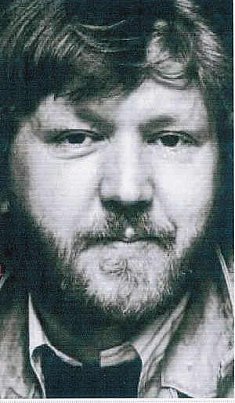
The too-short life of the greatly under-appreciated singer/songwriter Harry Nilsson (1941-94) was full of bitter ironies: not the least was that this gifted songwriter's biggest hits were written by others.
His memorable Without You was penned by Pete Ham and Tom Evans from the Beatles-blessed power poppers, Badfinger; and although Nilsson's beautiful original song I Guess the Lord Must Be in New York City was slated as the theme to Midnight Cowboy, director John Schlesinger opted for him singing Fred Neil's Everybody's Talkin'.
Neil rightly got the credit for a great song, but it hardly helped the fragile ego of a man who had been hailed as their favourite artist by no less authorities than Lennon and McCartney.
Nilsson's wayward genius was announced to the world in 1968 by Lennon and McCartney when they launched the Apple label in New York, and said he was their favourite artist.
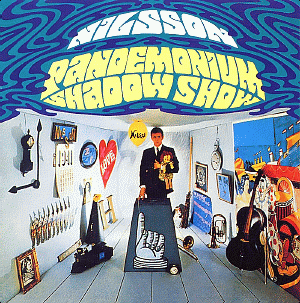 Nilsson was a jobbing LA songwriter, but on his album Pandemonium Shadow Show he'd ambitiously covered She's Leaving Home, and You Can't Do That was a precociously clever and multi-tracked amalgam of Beatles titles, hooks and riffs. Lennon and McCartney were both so impressed they called him.
Nilsson was a jobbing LA songwriter, but on his album Pandemonium Shadow Show he'd ambitiously covered She's Leaving Home, and You Can't Do That was a precociously clever and multi-tracked amalgam of Beatles titles, hooks and riffs. Lennon and McCartney were both so impressed they called him.
In later years Nilsson wasn't entirely helped by his Beatle connection: some people know Nilsson only as John Lennon's LA boozing buddy in the early 70s. Yep, that's Harry in the Famous Photo with his fist clenched and maybe trying to stop the peaceful Beatle from punching someone out.
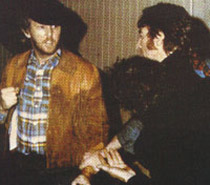 "That ruined my reputation for 10 years," Nilsson said later. "It still haunts me. People think I'm an asshole and a mean guy. They still think I'm a rowdy drunk from the 70s who happened to get drunk with John Lennon, that's all."
"That ruined my reputation for 10 years," Nilsson said later. "It still haunts me. People think I'm an asshole and a mean guy. They still think I'm a rowdy drunk from the 70s who happened to get drunk with John Lennon, that's all."
Part of Nilsson's problematic public profile also stems from the fact he was prolific, but bounced across many styles.
He was an adult-pop craftsman who wrote children's songs (his album/story The Point was a metaphorical children's tale for adults and an animated television film), flat tack rock (Jump Into the Fire), naive pop (Cuddly Toy was a hit for the Monkees) and faux Caribbean songs ("put de lime in de coconut").
He fooled around with sound effects and tapes, used orchestras, had Van Dyke Parks on piano, and steel drums when required.
He recorded an album of Randy Newman songs years before most people knew who Newman was -- it rose without a trace -- and his ballads were sometimes undercut by his Anglophile humour: "Ever sat on a fence with bits of crap around its bottom blown there by the wind?" he sings seductively on The Moonbeam Song.
He got the Stepney and Pinney pensioners choir to sing a chorus, "I'd rather be dead than wet my bed."
Throughout his short career -- effectively little more than a decade from 67, and he rarely played a concert -- Nilsson had an intuitive understanding of English music hall, Tin Pan Alley and rock'n'roll.
He didn't shy away from writing country'n'western parodies (Joy) or attacking sacred texts such as River Deep Mountain High.
Nilsson's many humours ran from wry observation to satirical stuff'n'nonsense. And he also wrote film scores. He was an exceptional piano player (for Nilsson sings Newman he analysed Randy's playing intensely), and could sing with great sensitivity . . . or like his life depended on it.
Nilsson was more an adventurer than an artist: part Warren Zevon and part Boyce-Hart; an accomplished journeyman but serious artist; and a balladeer with a three-and-a-half octave range.
You can hear why Lennon liked his echo-heavy rock voice, and they recorded the album Pussycats together, a not entirely successful venure but it least had the effect of straightening Lennon up while he played producer.
Of course, Nilsson also got boozed and coked to the eyeballs, and his public career was over by 1980.
He withdrew after Lennon's murder, and died in 94 of a heart attack, aged 52. A few years previous his manager had stolen just about every dollar Harry made. When he died Harry was all but broke.
Some years ago his first eight albums were nicely remastered and generously put two albums on one disc for some of them. It was one of the most thorough and deserving reissues of recent years. The discs come with useful liner notes, and judiciously few extra tracks and outtakes.
The discs are Pandemonium Shadow Show/Aerial Ballet; Harry/Nilsson Sings Newman; Skidoo/The Point; Nilsson Schmilsson; and Son of Schmilsson. Of them, the two Schmilssons are essential.
Harry/Nilsson Sings Newman is the next step.
The early Shadow/Ballet pairing is interesting only if you get real serious.
His soundtrack songs to Otto Preminger's Skidoo is fine but hardly necessary. (He sings the films credits: "And Groucho Marx played God.") 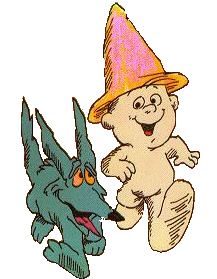
But Skidoo is paired with The Point which is Harry's knowing gem of a childrens' story. Excellent, especially if you are a kid -- or have ever been one.
Harry Nilsson has all but disappeared from popular culture but listening to his best work makes you realise what we are missing.
Towards the end of Scorsese's Goodfellas there's an adrenalin-pumping sequence when Ray Liotta is snorting coke, picking up his brother from hospital, racing home to prepare spaghetti sauce, snorting again, selling guns, snorting, and watching for police choppers. The madness kicks in with Harry's breakneck Jump into the Fire. In the context it is perfect.
Unfortunately, some days must have been like that for Harry, too.
He jumped into fires.


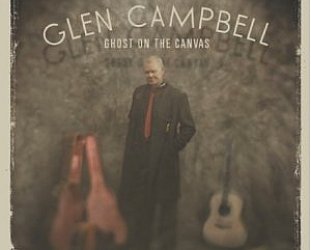
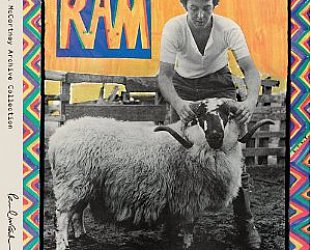

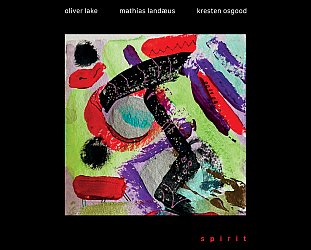
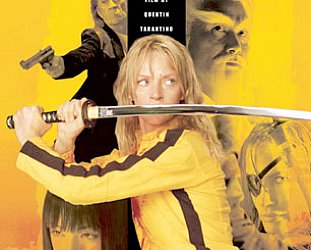
post a comment